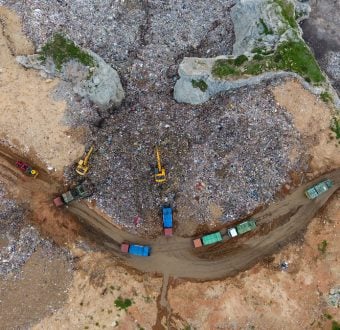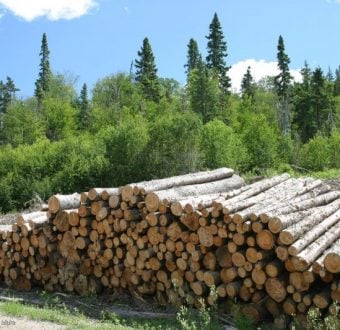A bipartisan group is moving towards legislation that would prohibit imports of agricultural commodities sourced from illegally deforested lands. The law aims to cover the following commodities: palm oil, soybeans, cattle, cocoa, wood-pulp, and rubber.
While this bill could potentially be the beginning of the US to address its role in global deforestation, it’s important to recognize that legislation focused on illegality will not stop all deforestation from entering global markets. The “Fostering Overseas Rule of Law and Environmentally Sound Trade” (FOREST) Act, introduced by Senator Brian Schatz (D-Hawaii) and representative Earl Blumenauer (D-Oregon), only addresses a fraction of the problem. The FOREST Act ignores the anti-environmental policies in producer countries that are incentivizing forest and ecosystem destruction, legal or otherwise, while dismantling enforcement and advancing laws to in fact legalize land grabbing and reduce Indigenous Peoples’ lands.

Recently burnt area for the expansion of livestock in Trairão, Pará in Brazil.
In Brazil, we are seeing how the government is dismantling legislation, legalizing illegal land claims, and further encouraging the invasion of land grabbers, miners, and loggers on Indigenous territories since taking power in 2019. Legislative proposals dealing only with illegal deforestation mean that anything the Brazilian government deems ‘legal’ – which is likely to increase exponentially – will still be permitted. Land grabbing on public lands is linked to one-third of all Amazon deforestation in Brazil. The main driver of deforestation is clearance by meat producers for cattle ranches. Experts predict these destructive legislative proposals in Brazil could ‘break’ the Amazon because the rainforest can only sustain so much forest loss before it fails as an ecosystem.
Meanwhile in Southeast Asia, the Indonesian government introduced in 2020 the Omnibus Law, a job creation law that incentivizes deforestation and allows corporations to operate with impunity. The Omnibus law infringes on the rights of workers by removing critical wage and benefit protections and threatens the rights of Indigenous Peoples as it risks further land grabs through the weakening of environmental regulations. Indonesia’s Palm Oil Moratorium – issued in 2018 to restrict new permits for palm oil plantations – expired on September 19, 2021 and thus far there has been no effort by the government to re-establish the moratorium.
The government of the Democratic Republic of the Congo announced earlier this year its plans to lift the moratorium on new logging operations in the Congo Basin forest. The imminent threat of lifting a 20 year ban on new logging licenses has severe consequences for one of the last intact rainforests in the world and the rural communities whose rights will be severely threatened.
In forest frontier countries where environmental protection measures remain weak there are loopholes and blurred lines that allow for measures to easily unravel in all directions giving space for continued degradation and deforestation to occur. Supply chains are extremely complex and it’s not accidental – information is at times intentionally hidden and the same systems set up to regulate often lend themselves to corruption, fraud and so much more. The strongest evidence of this can be seen in Brazil, Indonesia and in the Congo Basin countries – that are also home to the biggest tropical forests in the world.
Decades of inaction by governments and companies trading commodities have created the crisis forests now face globally. The risk extends to the financial institutions that support these companies and the expansion of the agribusiness sector in forest frontier countries. The result of inactions by producer groups and conglomerates including governments and financial institutions has exacerbated the climate emergency for global communities.
Unique ecosystems in Brazil are already experiencing the consequences of the land clearing and human-caused fires used to make way for the commodities trade that are sourced in the Amazon, Cerrado and the Pantanal. In Indonesia, decades of unchecked deforestation tied to palm oil and pulp wood has changed sensitive landscapes across Kalimantan and Sumatra where heat and recurring floods in the region are life threatening.

A family wades through the floods in Katingan Hilir, Katingan District, Central Kalimantan. Floods have submerged 15,439 houses and affected 25,443 people in 13 sub-districts of Katingan district, Central Kalimantan province, according to Indonesia’s National Disaster Management Agency (BNPB).
Immediate action is needed on all fronts to prevent the climate, humanitarian and wildlife catastrophe.
To stop the loss of vital forests and ecosystems, we need to cut ties with all sources of destruction.
We must not forget that a year ago, members of the Consumer Goods Forum (CGF) grossly failed to meet their commitments to stop deforestation by 2020. Some of those same multinational corporations that defaulted on CGF commitments endorsed the New York Declaration on Forests (NYDF) along with world leaders aimed to cut deforestation in half by 2020. The NYDF issued its assessment on 2020 targets and found forest loss increased rather than halved. The assessment went on to report – ” the rate of natural forest loss has increased, and ending natural forest loss by 2030 will require a rapid paradigm shift by the global community towards valuing forests for their essential benefits and prioritizing their protection.”
In June 2021, UNEP (United Nations Environment Programme) warned that humanity is “facing the triple threat of climate change, loss of nature and pollution”. They urged countries to deliver on their promise to restore at least one billion degraded hectares of land in the next decade.
The IPCC continues to remind us that emissions must be halved by 2030 against 2010 levels. However the difference between what nature needs and what governments and companies may do at some point in the future is abysmal.
The conversation surrounding deforestation and supply chains has moved beyond illegality – we need real corporate accountability, not the illusion of it. Structural and systemic changes are needed and they must be deeper in order to tackle the extractive industries and the human rights abuses that are intrinsically tied to these models of production.
There is no room for any form of deforestation or human rights abuses in global supply chains. It is outrageous to think that after more than ten years of these discussions, the ambition does not match urgency. In order to end the US complicity with forest and ecosystem destruction, any legislation in the US needs to reflect the ambition and responsibility needed to halt all deforestation and reverse the biodiversity and climate crisis our world is facing.






